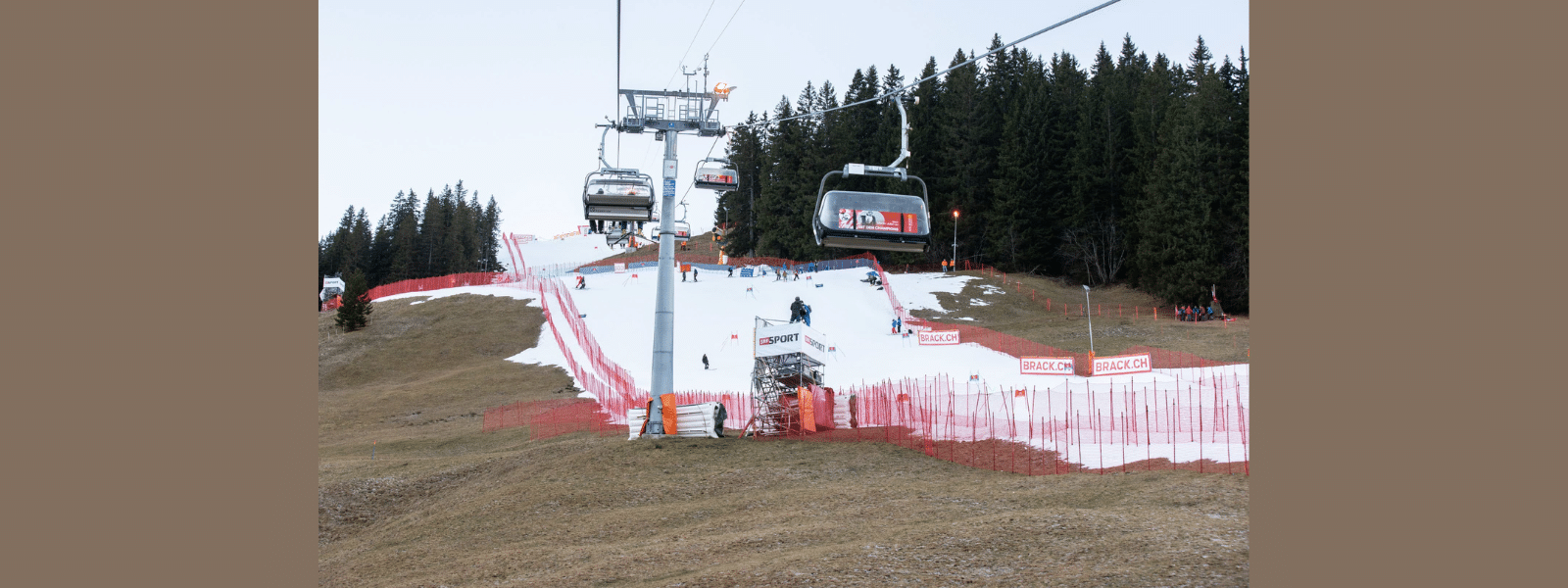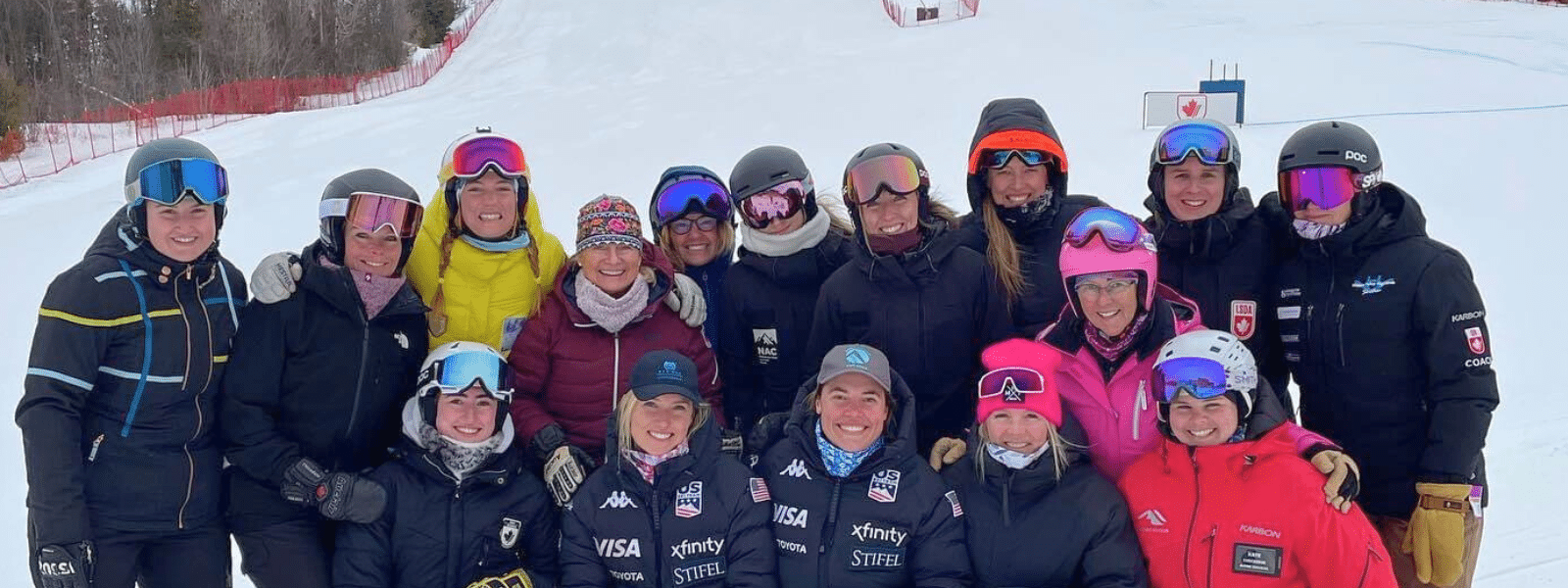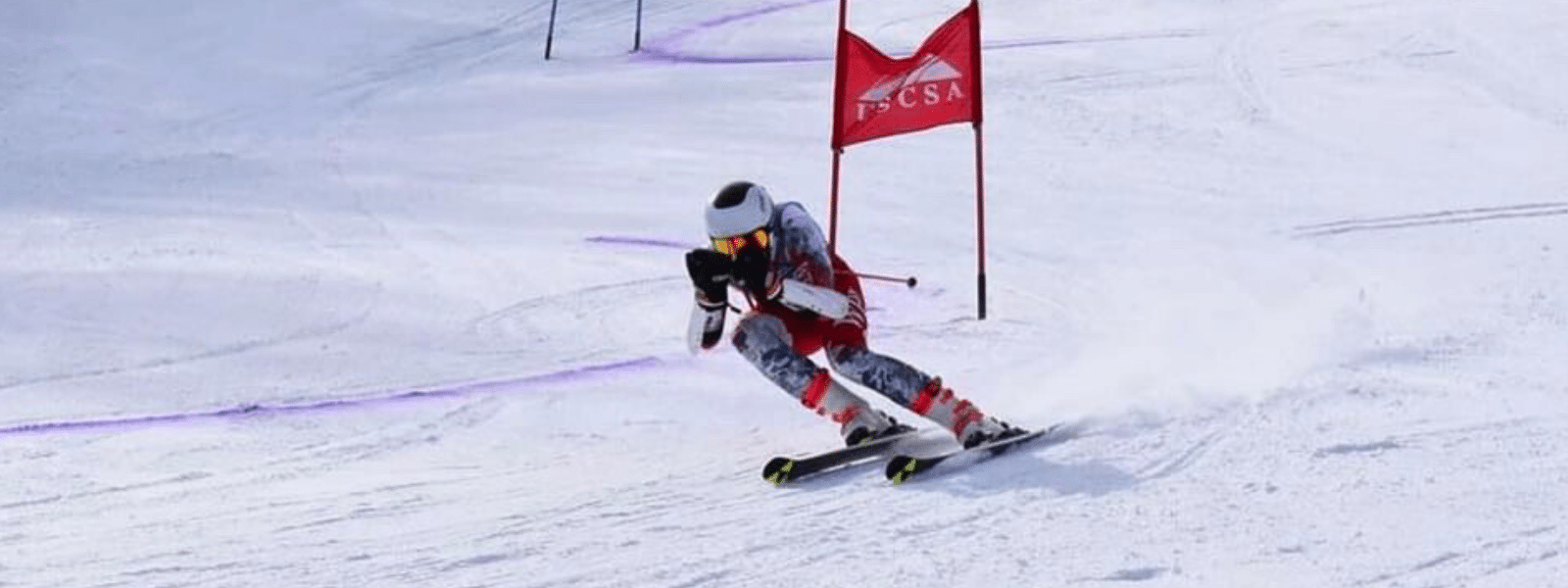How to Survive (and Thrive) Your First Year of FIS
The transition from U16s to U19s is an important and challenging rite of passage for every young ski racer. The first year of FIS racing is also a crucible that tests racers physically, technically, tactically, and, especially, psychologically and emotionally. To continue to pursue your ski racing goals, you must “survive” and, in fact, find ways to thrive during that first year of FIS racing despite the odds being against you.
Being a U19 sounds so grown up and mature because the number 19 is in the label. But, the reality is that as a first-year FIS racer, you’re still a relative baby compared to those who reside at the high end of the age group. The challenges you face in that first year with the big boys and girls, and how you respond to them, may very well determine whether you stay in ski racing for the long term or decide that the sport just isn’t for you anymore.
Let’s start with the unfortunate fact that there is huge attrition in our sport from U16 to U19. The need to move to the mountains or attend a ski academy, increased cost, dividing family, extensive travel, and having to give up other activities and friendships are all major obstacles that any young racer who wants to race FIS must overcome.
If you do choose to commit to the life of a FIS racer, you’ve just begun to “run the gauntlet” in pursuit of your ski racing goals.
Even if you were a star as a U16, for example, you qualified for U16 Nationals, broke into the top ten, or even stood on the podium, there is no guarantee that those early successes will translate into a continued climb up the competitive ladder as a U19. Many U16s reach the podium because they just mature physically faster than their peers (unfortunately, parents and coaches often mistake physical maturity for talent). The problem is that, by the time young women and men become first-year U19s, pretty much every other 16-year-old has matured, so that advantage is lost. Plus, when I said “big boys and girls,” I meant it. In some cases, first-year FIS racers are competing against 17- and 18-years-old who outweigh (and out muscle) them by 20-50 lbs.
There are other barriers that newly minted U19s must face as they enter FIS. First, they have to figure out how to turn 30-meter GS skis that are far more difficult to arc than what they have been accustomed to. Second, they might have had amazing USSS points as a U16, but those points mean nothing once you get to FIS. I actually love the fact that everyone begins FIS on a level playing field, with 990 points because early success isn’t highly predictive of success in FIS. Third, at a practical level, those 990 points mean that every first-year U-19 is starting “in the weeds,” meaning at the very back of the start lists. This situation presents a big challenge in terms of snow conditions and the ability to finish races, move up after the first run (i.e., make the flip), and improve their points in any dramatic fashion. Perhaps even more difficult is that top U16s have gotten pretty darned comfortable with early start numbers and hero course conditions. So, moving to the back of the pack in FIS races can be a real shock to their systems and truly demoralizing.
Yes, there are practical obstacles to a successful transition from U16 to U19. But, it’s the psychological and emotional barriers that may be the most difficult to overcome. I have worked with many young racers, including several at this very moment, as they make the move from the “minor leagues” of U16s to the “big leagues” of U19s. Here are some of the biggest challenges that they and you will face and the lessons we’ve learned that you may also find helpful as you confront the same tests.
Outcome Focus
Because FIS “matters” and early results can set you up for better start numbers, results, and points, it’s easy to fall into an outcome focus which involves directing all of your attention to the results you want to get. There are two problems with this focus that actually prevent you from getting the results you want so badly. First, if you’re focusing on the outcome (which occurs at the finish), then you’re not focused on the process that will get you from the start to the finish which will then produce the result you want. Second, first-year FIS racers often get more nervous than usual before races. Why? Because, again, these races “matter,” they have outcome expectations for their races (see below), and they worry that those expectations won’t be realized. In other words, they are more focused on failing (and all the pain that would cause) rather than on just skiing their fastest.
Lesson learned: Do your best to focus on the process of the race, namely, what you need to do to ski your fastest. Examples include your pre-race warm-up and routine, mental imagery, listening to music, and talking to your friends. If your mind drifts back to results, say to yourself, “Okay, I would like that result. Now, what do I need to do to achieve it?”
Expectations
Under normal circumstances, expectations can be the “kiss of death” for racers. When the difficulties of first-year FIS racing are added to the mix, the weight that you feel on your shoulders can feel crushing.
Usually based around results, expectations cause racers to put tremendous pressure on themselves to achieve those results that they expect of themselves. Unfortunately, racing first-year FIS doesn’t usually play nice with expectations because there is so much that is outside of the control of first-year U19s. Most notably, you may ski really well in your initial FIS races, but the conditions produce mistakes or DNFs that don’t lead to point opportunities.
Lesson learned: Jettison any expectations you have and just focus on skiing your fastest. If expectations creep into your mind on race day, redirect your focus onto getting yourself ready to ski fast or actively distract yourself by listening to music or talking to your teammates.
Short-term Perspective and Impatience
We live in a world where we want it, we want it how we want it, and we want it NOW!! A microwave (decidedly old school) warms food almost instantly or the internet (relatively new school) where information and connection can be gotten immediately are two relevant examples. The fact is, though, that nothing of value in life comes quickly or easily, and that includes results in ski racing (yes, for some, results come earlier, but not more easily; think Mikaela Shiffrin and Alice Robinson).
Unfortunately, this “I want it now” culture has caused many young people to become overly focused on the short term and have lost sight of the “long game.” They feel the need for immediate success or else they think they will have failed. With this short-term perspective leading the way, impatience is rarely far behind. And I can assure you that impatience doesn’t play nice with long-term success.
If you become impatient early in your FIS career, you are setting yourself up for huge frustration, a joyless ski racing experience, and, in all likelihood, a quick end to your ski racing career. Your attitude can shift from “I want it now” to “I NEED it now!!” Every race feels like a 50-lb. weight vest and becomes a pressure cooker. And the end result is rarely good.
Lesson Learned: First, focus on your “long game,” in other words, where you want to get to in your ski racing and what it will take and how long it will take to get there. When you start to get antsy about your results early in your first year of FIS racing, remind yourself that there will be ups and downs and that patience will serve you in the long run. By doing so, you make every race just a small step in your ski-racing journey, rather than a “make or break” event. Thus, you lighten your psychological and emotional load and free yourself to ski your fastest, regardless of what shows up on the results sheet.
Comparing Yourself to Other Racers
There are few things more harmful to your ski racing than comparing yourself to others, primarily because, in my experience, the comparison that most racers make is not complimentary of themselves. In other words, rather than building themselves by comparison, they cut themselves down.
Comparing yourself with others is a lose-lose-lose-lose for you. First, your focus is on your competitors, not on you (lose!). Second, they’re in your mind rather than you being your mind (lose!). Third, that combination results in a decline in confidence, increase in anxiety, loss of focus, and a plethora of bad emotions including stress, worry, fear, frustration, and despair (lose!). The final “lose” is, well, you lose!
Lesson Learned: As difficult as it can be, ignore your competitors. Don’t watch them ski, warm up, or race. Instead, direct your focus on what you need to do, so when you slide into the gate you can say to yourself, “I’m as prepared as I can be to ski my fastest.” Because, in the end, that’s all you can do.
Conclusion
When you avoid the common pitfalls of racing in your first year of FIS, you give yourself a chance to put your best effort into every race run, ski as fast as you can, and, in the long run, get the results you want. By adopting the approaches I described above, you give yourself the time you may need to adjust to racing FIS and make the strides you want in your first year and beyond. And, just as importantly, your first year of racing FIS will be a lot less stressful and a lot more fun. And, realistically, that should be the main reason why you ski race in the first place.
Want to make mental training a part of your race season program? Take a look at my online mental training courses. Need more personalized mental training? Check out my 1:1 work with racers.





















